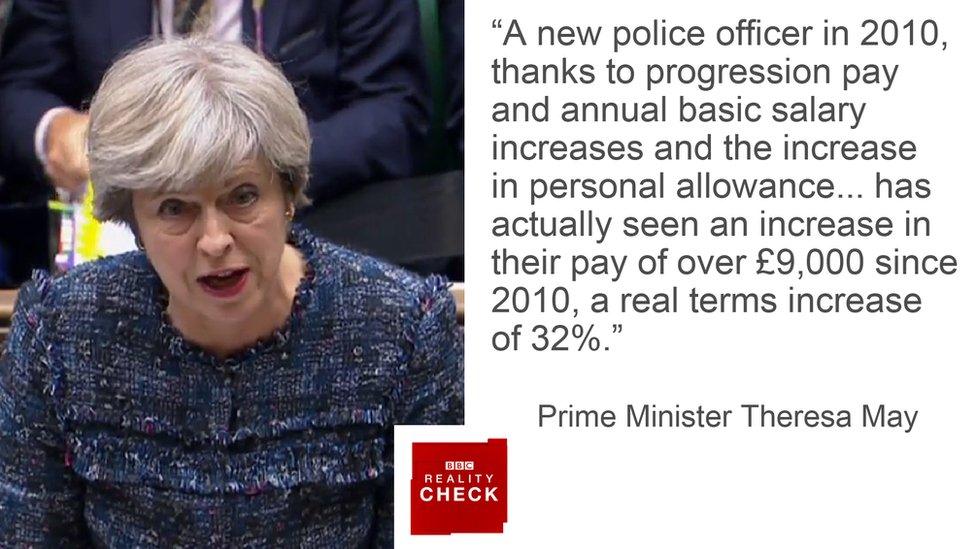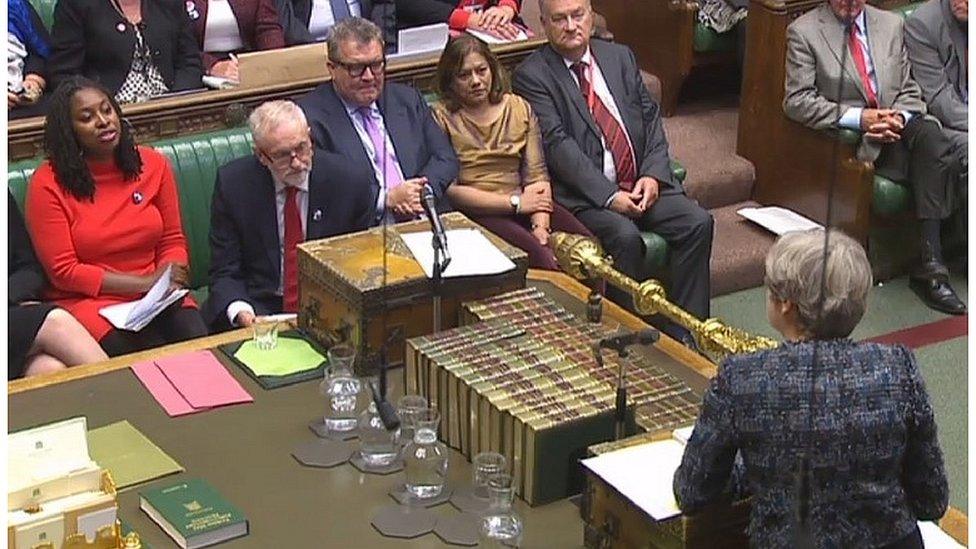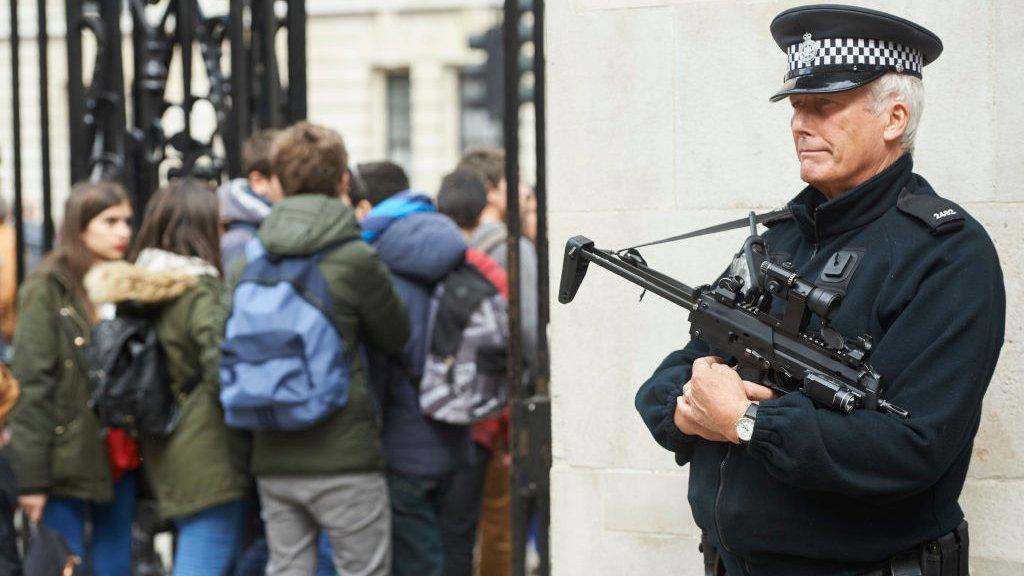Police pay: Was the prime minister right about salaries?
- Published

The claim: A police officer starting in 2010 would, by now, have received a 32% increase in pay in real terms.
Reality Check verdict: That's right, but it is not representative of police officers as a whole.
Prime Minister Theresa May told the House of Commons on Wednesday that a police officer who had started in 2010 would, by now, have seen their pay rise by 32% in real terms.
Now, 32% over seven years is 4% a year, which sounds high. The Police Federation initially said her statement was a "joke" and a "downright lie".
Downing Street gave the figures behind the claim. A typical police officer joining the force in 2010 would have earned £23,259, taking home £17,972 after deductions for tax and national insurance.
After seven years' service, the same officer would earn £35,478, taking home £27,405 after tax and national insurance. This is an increase of £9,433.
When you adjust for inflation, the increase is just under £6,000, which is indeed an increase of 32%.
The Police Federation confirmed that a new officer starting in 2010 would have earned about £23,000, rising to about £35,000 today.
But the Police Federation stressed that this was not a typical example and that those who had started in 2010 made up less than 4% of all officers.
It also said that most officers were now at top of their pay scale and so would not benefit from progression payments.



- Published13 September 2017

- Published2 May 2017

- Published21 June 2017
